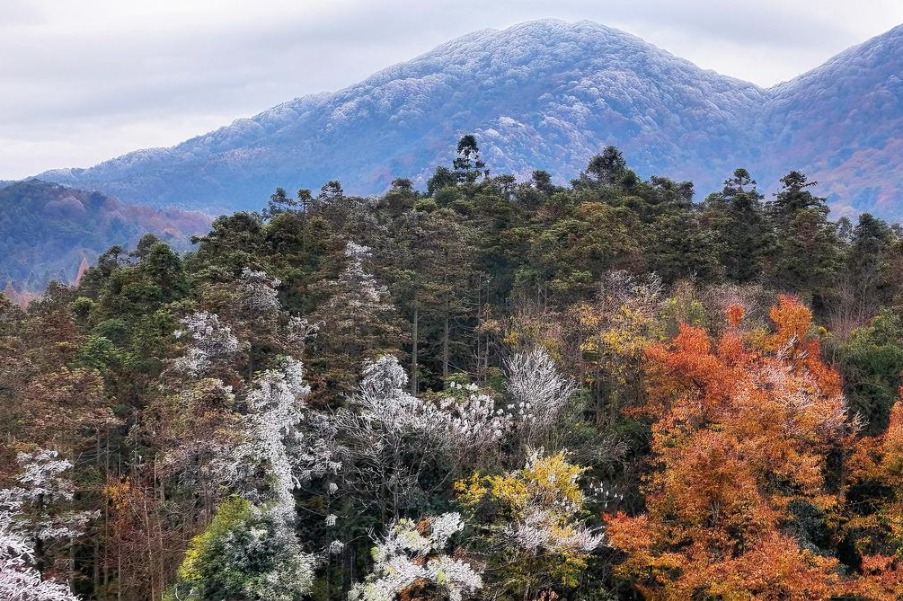Cold blast brings record low temperatures to 3 provinces


He said that global warming has caused warmer winters in most years since the 1980s, but can also lead to colder winters such as in 2010, 2011 and 2012.
"From autumn 2020, global warming has begun to melt arctic sea ice and reduced it to the second lowest on record, weakening the polar vortex-air that spins around the stratosphere over the Arctic area," he said.
"Usually, the vortex locks cold air inside, but this winter's weaker vortex has released more cold air that moved southward to Eurasia."
Song added that global warming causes both hotter and colder weather.
"Global warming leads to unstable climate and extreme weather events including rainstorms, cold fronts and heat waves," he said.
La Nina, a fluctuation in sea-air interactions that causes the cooling of ocean surface water, also contributed to the coldness.
"The phenomenon helped cold air move south on a large scale in most parts of China," Song said.
The National Meteorological Center warned that transportation authorities and police should prepare for icy roads and people should wrap up to keep warm. The public should also follow weather reports to take preventive measures against the cold.
- Ancient DNA reveals kinship, social structure of China's prehistoric Shimao city
- Bookstore inside 326-meter sinkhole becomes viral landmark
- Guizhou's new high-speed rail set to boost tourism, development
- Shenzhen Fire Department dismisses speculation about cross-border assistance
- Tai Po fire death toll climbs to 44
- Full text: China's Arms Control, Disarmament, and Nonproliferation in the New Era





































